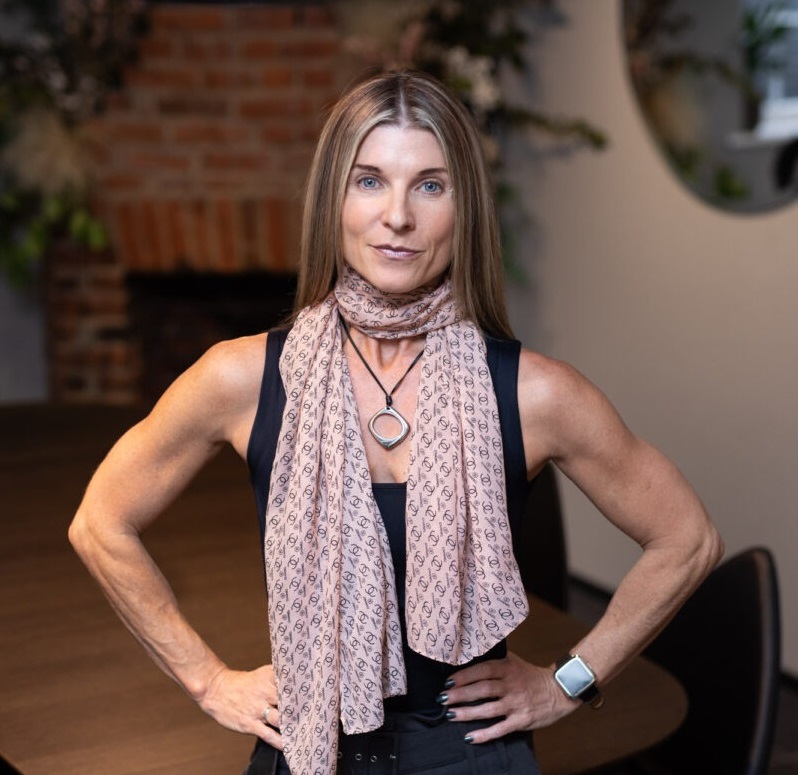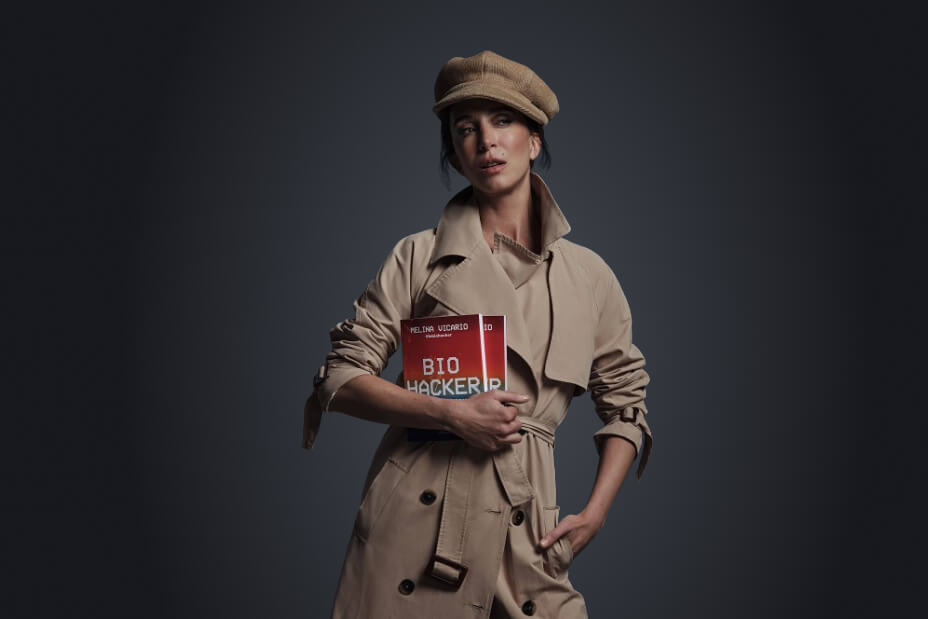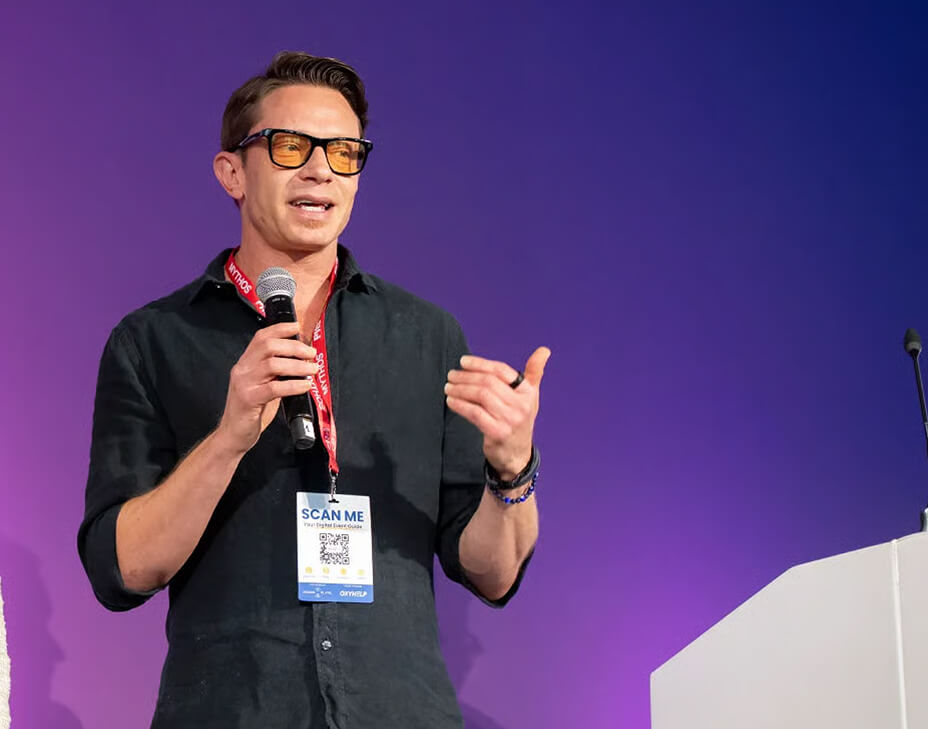Adelle’s Journey: From the GlycanAge Test to a Cancer Discovery
Find out how a bad GlycanAge result served as a puzzle piece in a fight for the right diagnosis.

Adelle Martin is more than a bodybuilder, health coach, financier, and mom. She’s a woman who won’t take no for an answer and takes every obstacle as an opportunity to help women in similar situations. Find out how she deals with two M words - menopause and myeloma and what part GlycanAge had in her health journey.
Your GlycanAge experience was a bit different than most. Can you tell us what happened after your first GlycanAge test?
Everybody always says to me - you look younger than what you are. And what do we associate with looking young - being healthy!
So I said, okay, I'll do my GlycanAge and find out what my biological age is. But when I got the results back, I was shocked. Actually, that’s an understatement. I’m 53, but my GlycanAge result is 57, which got me thinking that something is wrong.
I went through early menopause 13 years ago so it’s not that. I've been really meticulous about my food, my exercise and my sleep because that's what I do.
All the markers around vitamins, food and supplements were okay. However, the chronic inflammation marker was highlighted and showed that something was wrong. And when we looked into the details, I remember receiving this amazing wheel with all the different diseases, and it was pushing towards potential rheumatoid arthritis.
So I went to get some more blood work done through my GP. It showed the same thing as your test - I had higher levels of chronic inflammation. Furthermore, my hormones were nowhere to be found - my testosterone, progesterone and oestrogen were basically non-existent, but I was on standard HRT.
There was also something around my red blood cell markers.
So all in all, I didn't get the good result that I expected. But although the results were bad, things were starting to go together. Then I spoke to my GP, and the first thing I got was an offer to go on antidepressants, which was exactly the same thing that happened to me 13 years ago when I had a meltdown in the boardroom, foreshadowing my early menopause.
I couldn't believe that 13 years apart, going in as a midlife woman, the default is still antidepressants and the advice to get a less stressful role. I couldn’t accept it, so I went back and asked to have my blood test repeated.
I just finished a bodybuilding competition and while everything looked fine, my red blood cell markers and the chronic inflammation marker had gotten even worse. So my GP focused on my hormones.
We worked out a different HRT treatment and they went back to optimal. But still, my red blood cells, chronic inflammation and kidneys were not looking good and I didn’t feel good. My bones hurt, and I felt tired.
So then they put me into haematology. I went in and had more blood tests than I care to remember.
Then I was called back and they told me it was myeloma.
I didn't really understand what it was, and then they explained to me that it's a rare blood and bone cancer that can be really aggressive on the bones. So then I had to go in for a bone biopsy and a scan and I got the results back a couple of weeks ago.
I am at stage one with myeloma. The interesting bit is my bone density is holding its own. There is not one lesion, which made my doctors go - how are you doing it? Because my underlying health and well-being practices are holding my body together.
So what I was able to do from that original GlycanAge test was use it to finish the jigsaw and actually start to understand what caused it. The one thing that every single blood test was showing, was chronic inflammation and a link to some sort of bone.
So although GlycanAge said it was in the area of arthritis, it was more than that. It was in every single bone and joint of my body. So it enabled me to go and ask more questions. I didn't just go - Oh, well, is it HRT? Is that what I need?
Because my results were a bit of an enigma. So now I am in the monitoring stage. There is no treatment at this stage. In the future, I could go for a stem cell replacement. They said when I said if. I really want to hold on for as long as possible.
What I'm going to be interested in doing is monitoring my hormones. And in terms of my food and nutrition, I've switched to organic food where possible. I've made sure I'm not taking artificial sweeteners. Same with skincare and other products - I've taken as many environmental things out of my body as I can because I have to fight this cancer every single day, and I'd like to come back and improve my tests, including the GlycanAge one.
What an amazing story. I truly wish you all the best, and that very soon this all can be in your rearview mirror. As far as I understand this type of cancer, it's not typically caught at such an early stage.
Thank you so much.
No, and that’s a very good point. So with this, there are two things. Firstly, it's not curable. But what I’ve learned recently, I’ve learned from some amazing women that I’ve spoken to. A friend of mine said their mum's got the same cancer and I'm going to meet a group of women that have it as well.
They are all in their late 80s and 70s. And the interesting bit, when you look at the actual symptoms, it makes me laugh.
Listen to this -
- brain fog
- joint pain
- fatigue
I know another M word that deals with that.
And the similarities with menopause don’t stop there. Some of the women who have been diagnosed later on in life have fallen over and broken bones.
I was talking to these older women and said - isn't it interesting that perhaps it wasn't menopause, perhaps there was an element of this cancer?
Because of the age of a woman, you just assume it's menopause. Therefore you just go through the motions and you take your HRT or you don't. It's a personal choice. And then you fall down, break bones and later on get a cancer diagnosis.
This cancer is so aligned with menopause.
Now that I’ve shared my diagnosis, I get questions about whether I had a fall that resulted in the discovery of the cancer. No, I didn’t. I had my blood work and I wouldn't take no for an answer. I work with clients from all around the world, my clients in the US have their bloodwork done regularly every three months.
We don't, as a default, have bloodwork done for midlife women. So a lot of women are going privately. But I don’t know if anyone is making the connection - why is a midlife woman coming in? Both menopause and myeloma are chronic conditions, and neither should be treated with antidepressants. That's not the default.
And I'm going to be talking about why that shouldn't be. And we should be offered blood work. But women are going privately because we don't know what we don't know. So yeah, the more I've moved forward and shared my story and talked to other women, the more I see a connection around this.
But women are not great at investing in themselves. We care about everyone before we care about ourselves. So I’ve been using World Menopause Month to speak to hundreds of women, and to ask them the important question - what if your quality of life depended on you?
What if perhaps you could reverse type two diabetes or joint pain? What if your life depended on it like mine did? At what point, as women are we going to put ourselves first?
So, you know, my rhetoric going forward when I'm talking to women is to invest in your present and future self. And one way you could do it is with the GlycanAge test.
You're quite open about your menopause journey. Were you diagnosed right away, did you have any trouble deciding to go on hormones?
When I played it back, I just started the most amazing job in August. My family was where they needed to be and everything was perfect. And then in September, we went into the financial crisis and I was in one of the financial institutions that was at the front of it.
So immediately we were in crisis mode and I had to lead my team through it. And it went amazingly. We merged with another bank, which meant I didn’t have to go between London and Edinburgh as much.
At the same time, my mum got diagnosed with skin cancer and my daughter had the most tragic situation happen and everything got to be too much. The normal, resilient Adelle was carrying on. But something didn't feel right and I was just losing confidence.
Then one day I was going into the boardroom where I would normally crush. But this time I started to get really hot. I had to make notes on the presentation, but I was panicking, and wondering - how is my performance slipping that much?
I was struggling and I didn't understand why I felt so tired, so hot, so grumpy, and stupid. And when I started to present, one of the guys just stood up and said - you can't even remember your own name.
When I was a little girl I was a dancer and somebody at the end of one of the shows asked what my name was, I stuttered and everyone laughed. So I've dealt with my speech impediment my whole life. That one thing that gentleman said to me in the boardroom brought all of those emotions back.
I left the boardroom, I got home and went to bed. When I woke up, I took my daughter to school and right away I drove to my mum's, walked through the door and said - please make this stop.
She got me together and I went to the GP and explained everything -
- I can't think straight
- I'm having hot flushes
- I hurt, I ache
- I have anxiety, and I think I had a breakdown in the boardroom
As you can already guess, the GP told me to go on antidepressants and to quit my job. And I didn't want to do any of it.
So I started to look for a diagnosis on my own. And if you put together all of my symptoms, the first thing that pops up is menopause. That’s when I went back to the GP and asked for a blood test.
They thought that I was being ridiculous. But I couldn’t tell you when my last period was. Once I got a blood test it showed that I had no hormones, nothing. So I wasn’t even menopausal, but post-menopausal.
But I was so grateful that I finally knew what was wrong with me. However, once again, even though I had a diagnosis, the GP told me to go on antidepressants and get a less stressful job. He gave me a pamphlet that had the government guidelines and every woman in these guidelines had grey hair and looked really old. I was 40 and the average age for menopause is 51.
This means that I'm going to spend a longer time in post-menopause. What the hell am I going to do? So I went back to my job and asked if I could take a six-month sabbatical. I needed to understand what menopause was. They agreed and I started researching menopause because I wanted to help not just myself, but other women as well.
After some time, I went back to my GP and asked once again if there was any treatment. I knew how to eat healthily, how to exercise and all that, but I needed something more. HRT was brought up, but as soon as I heard that it causes breast cancer, I gave up.
I went back to work, but not to finance. I went into HR because I wanted to put in policies to help women, not just through menopause, but all of their life stages. I also did a lot on diversity and inclusion. I just wanted to make sure that both men and women going through something major would get the proper support.
But going back to HRT, three years later, I was doing a lot of strength training, and my hips felt uncomfortable. When I had them checked out, they looked worn down, especially the cartilage.
The doctor looked at my bone density and told me to consider HRT because I was young and I was going to spend a long time in this body. Then I did my research and realised that the big HRT study that claimed it was causing breast cancer was flawed. I went back to the white paper and then made a decision.
I thought to myself, as women we've always had to take ownership. Once you get your period you get to choose whether to go on birth control or not. The same goes for menopause - you choose to go on HRT or not. I didn’t want to live the rest of my life without HRT and be uncomfortable.
How do you educate your daughter about menopause? What would you say to someone who thinks that they have all the time in the world?
I talked to her about investing in her present self, as well as her future self, which is preparing for having a child and then preparing for the menopause journey.
The one thing for me that has stood out across both diagnoses is muscle building. Muscle is a game changer and I say to women - you must strength train. It's never too early or too late. My mom is 74 and she strength trains, so my daughter follows a really good strength training program and eats very well.
Her generation really struggles with PMT - premenstrual tension, which in some ways is a bit like perimenopause. Exercise is amazing for PMT and a great way to look after your future self, but I think stress management is also essential.
We never had those stresses that they're facing with Instagram, social media, peer pressure, etc. So it's making sure that she keeps her feet on the ground around those stresses as well. We both encourage each other to go on walks when we feel stressed out.
And funny enough, yesterday I was in the gym’s changing room. There were these 2 girls who must have been in their late 20s and talking about how they couldn’t imagine having to cope with children.
They were saying all the usual things - I can't think straight, I'm PMSing, I'll get angry. I don't know what to do, but still, I'm going out this weekend. And I sat back and told them - it all starts with food, move and snooze.
I said, I'm 53, don't worry about that, and soon we were all laughing. I told them not to be so hard on themselves and that they have time to work everything out.
I could have just left the gym, but that's somebody's daughter. And if my daughter was saying that and somebody else had the knowledge or the experience, I would have wanted them to reassure her. I always think about how that could be me or my daughter.
Absolutely, I couldn’t agree more. What are your next steps?
Moving forward, I want to focus on healing my body and I’m looking forward to my next GlycanAge test. I hope to see some improvements there.
I'm also setting up a community interest company to help women like myself going through cancer because I've lost so many hours and potential revenue by being in the hospital.
Unfortunately, 32% of women leave their careers because of menopause, and 58% leave it because of cancer. I’m looking for a way to help those women.
We wish you all the best and hope you heal and improve all your results, including the GlycanAge one. It’s inspiring to see that through all of this, you’re still making sure to help others.
If you want to keep up with Adelle, you can find her here.


